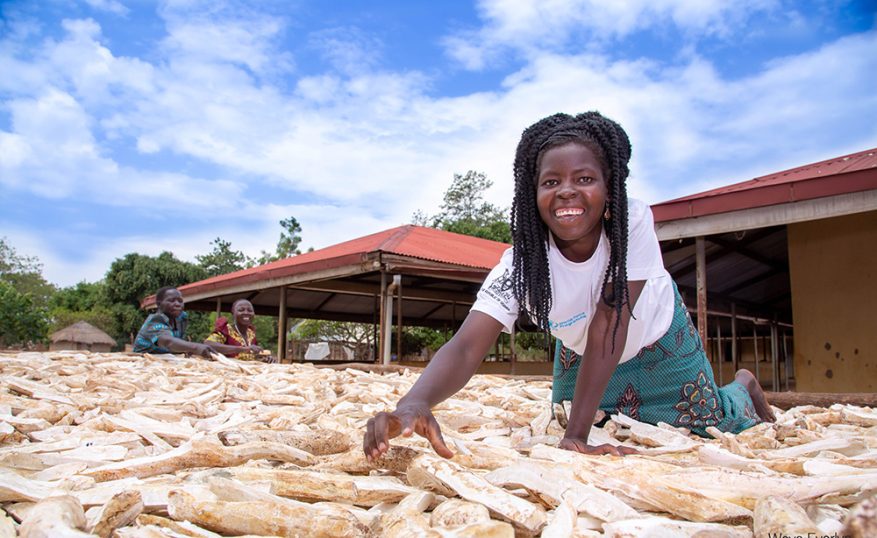Farming households in Uganda have bulked and sold more than 500 tonnes of grains to refugee communities living in their districts, thanks to a project that links producers to displaced families buying food supplies in the region.
5,000 farmers have established new markets – selling maize, beans, sorghum and other crops to displaced families in Adjumani and Kiryandongo – two regions that host upwards of 20% of the 1.5 million refugees living within Uganda.
Farmers have received training in production, bulking and storage of their grain, to ensure it meets the standards required by the World Food Programme, who are funding the scheme.
In the past year the project trained 624 farmer leaders in collective bulking and commodity marketing, and trained members of close to 200 farmer groups in ‘post harvest handling’ – methods required to protect crops from spoilage, to ensure that food crops aren’t losts to pests and disease, and can be maintained and sold at the required standards.
The direct market links between farmers and refugees has been enabled by changes in UN practices that have seen refugee households receiving regular cash payments in lieu of food aid from the WFP and other programmes.
“Our objective has been to link farmers working with Self Help Africa to the government cash-based programmes, and to ensure that they are producing in the manner and to the standards that are required,” explains project manager Lilian Aciro.
The project has also worked with farmer groups to improve the nutritional quality of food. Training workshops in crop biofortification, demonstration plots and the production and dissemination of crop information has been undertaken to further this goal.
Adhim Ovon, a farmer in Kiryandongo, said that he was selling more and earning more as a result of the project. With his increased income he had carried out work on his home and improvements on his farm, he said.

